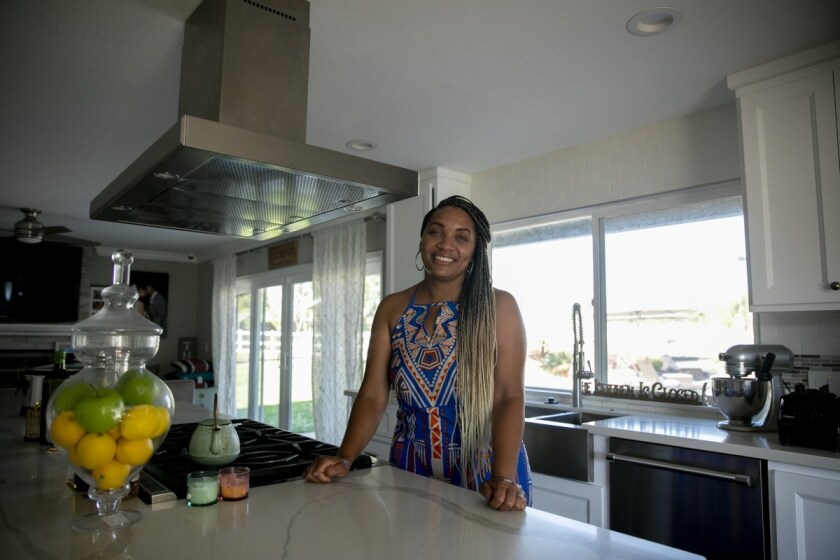The California Legislature sent the "light density" proposal to Newsom on Monday, a year after a similar measure was tripped up at the last minute by political infighting, along with another measure that could clear the way for more small apartment buildings in urban areas.
The governor now has about a month to either sign or veto the bills, part of a housing package shepherded by the state Senate leader that has generated sustained opposition from local governments and neighborhood associations, which object to losing some degree of control over how their communities develop.
In a statement, a representative for Newsom applauded "the Senate's hard work to craft and pass a housing package" and said the governor looks forward to reviewing the measures when they reach his desk.
"Our housing crisis is decades in the making and will take an all-hands approach to fix," spokesperson Erin Mellon said.
SB9, by Senate President Pro Tem Toni Atkins, D- San Diego, is part of a broader push to address California's housing shortage and bring down the astronomical cost of living by making it easier to build additional units. It aims to increase the density of existing residential neighborhoods, which are largely zoned for single-family housing, by establishing a streamlined process to split lots and convert homes into duplexes, potentially creating up to four units on a property that had just one before.
"We need those options more than ever to address the housing crisis in this state," Atkins said Monday on the Senate floor. "This bill can help make the dream of homeownership possible. This bill stands to help make communities more inclusive, and it stands to set this state up on a path where there are more housing options, more supply and more access to the California dream."
Her measure passed the 40-member Senate with a bipartisan vote of 28-7. It won approval last week in the 80-member Assembly, on a bipartisan vote of 45-19, following a lengthy debate over whether the proposal would bring more affordable housing into communities or accelerate trends that have pushed out longtime residents.
Atkins initially introduced a version of the bill last year, after a contentious plan to compel denser residential construction around public transit and in wealthy suburbs failed. The new approach was meant as an olive branch to opponents, a more modest and equitable approach to density that took into account their concerns about local control over neighborhood character and gentrification.
But her shift in approach did not quell intense resistance, particularly from groups representing suburban homeowners, who have mobilized to defend the local planning process where cities and counties decide what kind of housing gets built where — and residents can voice their concerns about the impact projects would have on traffic, parking, privacy and green space in their neighborhoods.
"There are four pages, single-spaced, here of the community associations, the cities represented by city councils throughout the state of California, of many individuals who have raised opposition on these very points," Sen. Pat Bates, R- Laguna Niguel ( Orange County), said Monday on the Senate floor as she held a list of opponents to the bill.
Under the Atkins measure, for example, local governments would have to approve applications to split lots and convert homes into duplexes if the projects meet size requirements and local design standards, fall outside historic and environmentally sensitive districts, and do not require the demolition of housing that is rent-restricted or has been occupied by tenants in the past three years.
A recent amendment would give them some discretion to deny a lot split if it would have an "adverse impact" on public health or safety. Another would require property owners who apply for a lot split to sign an affidavit that they plan to live in one of the homes for at least three years. Atkins said those changes would offer further protections against speculation and gentrification.
The outcry in Sacramento has been perhaps disproportionate to the potential for SB9 to fix California's housing crisis — or even to radically reshape communities.
A report published in July by the Terner Center for Housing Innovation at UC Berkeley estimated that, because of size requirements and market constraints, the bill would enable new development on only about 410,000 parcels zoned for single-family homes, or about 5.4 percent of the approximately 7.5 million single-family parcels statewide. The analysis also concluded that the changes would make up to 710,000 new housing units financially feasible under current housing conditions.
That's not nothing in a state that built more than 100,000 new housing units last year for the first time in more than a decade. But it's also not enough to close a housing shortage estimated at more than 1 million units, especially because not every potential new unit would get built.
The Senate also sent another contentious housing bill to Newsom on Monday: SB10 by Sen. Scott Wiener, D- San Francisco, which would allow cities to rezone some parcels, including those near public transit, for small apartment buildings of up to 10 units.
Wiener said the measure would help make construction easier and less expensive, as local governments face state mandates to plan for significantly more new housing over the next decade.
"Cities in particular have told me so many times, 'Please give us more tools so that we can do the things that you want us to do,'" Wiener said.
(c)2021 the San Francisco Chronicle Distributed by Tribune Content Agency, LLC.










